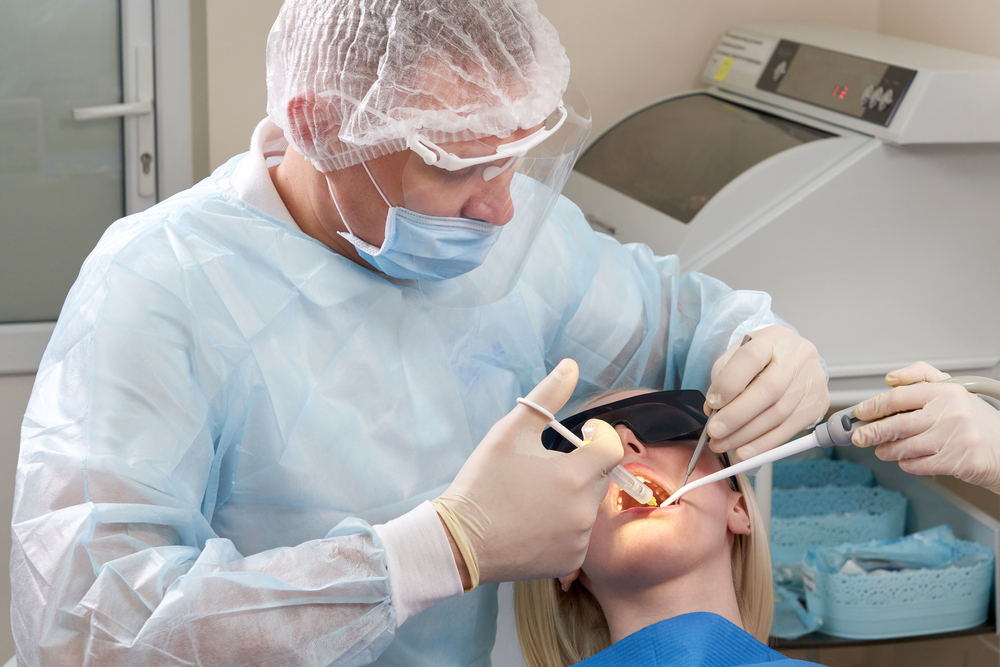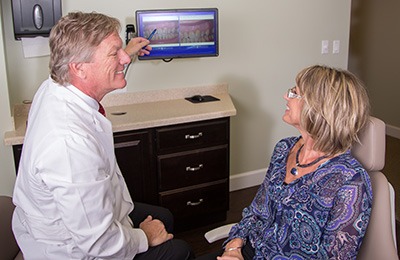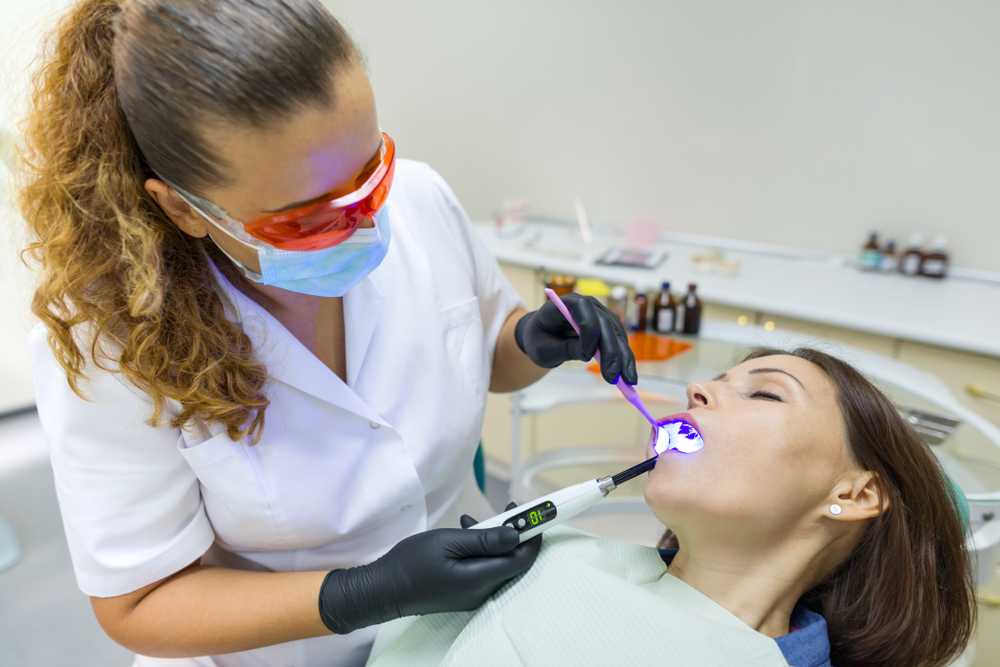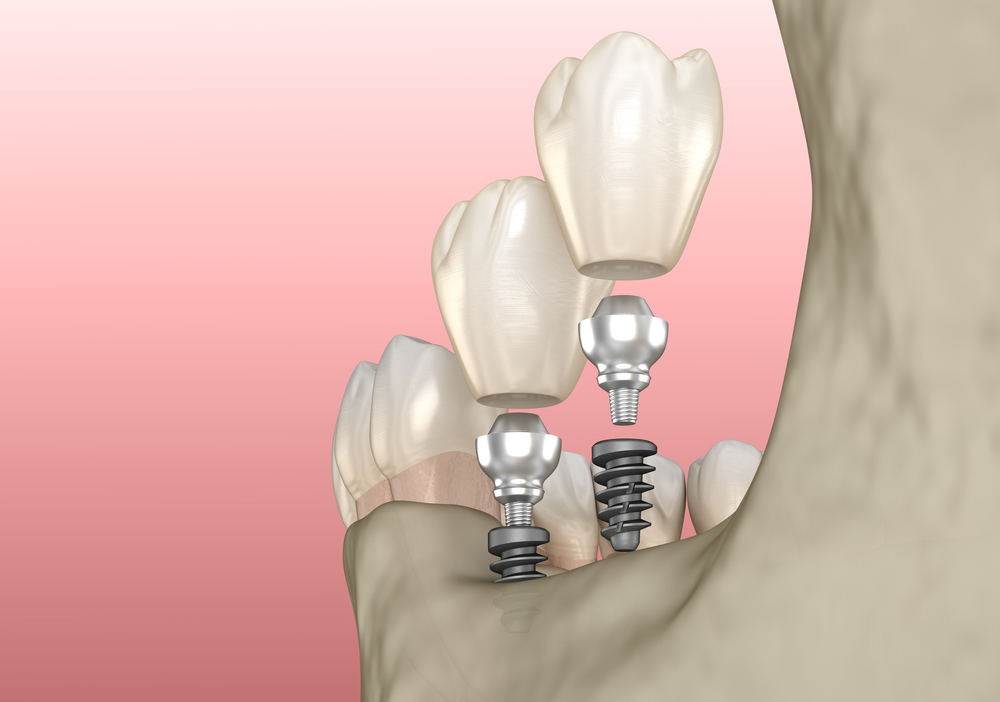Local Anesthesia in Bradenton, Sun City Center, and Sarasota, FL
Pain-free Dentistry with our Local Anesthetic Solution
Rubino Periodontics & Implant Dentistry provides exceptional dental care to residents in Bradenton, Sun City Center, Sarasota, and surrounding areas. One key component of safe dental practices is the use of local anesthesia, which allows us to perform various dental procedures while maximizing patient comfort. In our practice, we offer dental sedation options., using local anesthetics alongside these to ensure your experience is as smooth as possible.
Local anesthesia plays an integral role in the dental procedures we perform, enabling patients to undergo treatments with minimal discomfort. Call our Florida dentists today at 941-201-3055 for Sarasota/Lakewood Ranch, 941-209-5052 for Bradenton, or 813-331-5845 for Sun City Center to discover how we can assist you with our advanced dental services.
Our Commitment to Patient Comfort
Rubino Periodontics & Implant Dentistry places a strong emphasis on patient comfort. We prioritize your needs, ensuring that each visit to our office in Bradenton, Sun City Center, or Sarasota is as pleasant as possible. Here’s what you can expect from our team:
Caring and Attentive Staff: Our skilled team is dedicated to ensuring you feel relaxed and heard. We take the time to explain procedures thoroughly and answer any questions you might have.
- State-of-the-Art Technology: We use advanced equipment, including digital X-ray devices and 3D CT scanners, to enhance the precision of our treatments and keep our patients comfortable throughout their dental journey.
- Sedation Options: To further alleviate anxiety, we offer IV sedation and oral sedation, helping patients feel calm during their treatments. Our staff is trained to monitor you throughout the process, ensuring your safety and comfort.
- Relaxing Amenities: We also offer pillows, blankets, and wireless headphones for listening to music an relaxing during longer procedures.
Understanding Local Dental Anesthesia

The effectiveness of local anesthetics comes from their ability to disrupt pain signals being transmitted through nerve pathways. By interfering with sodium channels in nerve fibers, they prevent the propagation of sensations, including pain. This allows us to perform necessary treatments without causing discomfort to our patients.
Types of Local Anesthetics Used in Dentistry
While we primarily focus on IV and oral sedation, we ensure that our patients receive the most effective anesthesia for their specific procedures. Common local anesthetics utilized by dentists include:
- Lidocaine: Often regarded as the gold standard, it delivers quick onset and effective pain relief during dental treatments.
- Articaine: Known for its excellent infiltration properties, articaine is beneficial in cases of inflammation and is often preferred for certain dental surgeries.
- Mepivacaine: Typically selected for its longer-lasting effects, ideal for extended procedures where sustained numbness is required.
- Prilocaine: Their lower risk of allergic reactions makes this a suitable option for patients sensitive to other anesthetics.
- Bupivacaine: Used when prolonged anesthesia is necessary, offering extended duration for appropriate cases.
Local Anesthetic Administration
At our Florida practice, local anesthesia is administered primarily through injections that target gum tissue or nearby nerves. This precise delivery ensures the effective numbing of the area where treatment is to be conducted. Here are some common techniques utilized in our practice:
- Injections: Dental professionals use targeted injections to numb the specific area requiring treatment. This method is effective and allows for a virtually pain-free experience.
- Topical Anesthetics: Before injections, we may apply topical anesthetics to the surface of the tissues to minimize any discomfort associated with the needle. This creates a more pleasant experience overall.
Risks Associated with Local Anesthesia
While local anesthesia is a common and generally safe technique used in dental procedures, it is not without its risks. Understanding potential side effects, allergies, and adverse reactions can help patients feel more informed and at ease about their treatment. Here are some common risks associated with local anesthesia:
Allergic Reactions
Although rare, some individuals may experience an allergic reaction to local anesthetics. Symptoms can range from mild skin reactions, such as rashes or itching, to more severe responses that may involve difficulty breathing or swelling. It is essential to inform your dentist about any known allergies prior to receiving anesthesia.
Cardiovascular Effects
In some cases, local anesthetics can affect cardiovascular function. This is particularly true if a large volume of anesthetic is injected or if the anesthetic accidentally enters the bloodstream. Symptoms may include rapid heart rate, anxiety, or changes in blood pressure.
Nervous System Reactions
Overdosing or improper administration of local anesthesia may lead to local anesthetic toxicity or central nervous system (CNS) toxicity. Symptoms might include dizziness, twitching, seizures, or even loss of consciousness. Medical professionals are trained to monitor for these symptoms and take appropriate action if required. In addition, state-of-the-art monitoring technology is used to prevent local anesthetic overdose from occurring.
Transient Effects
Some patients might experience temporary side effects after the anesthetic wears off. These can include lingering numbness, tingling, or a “pins and needles” sensation in the treated area. Although usually temporary, these sensations can cause discomfort until normal feeling returns.
Injection Site Complications
Occasionally, complications can arise directly at the injection site. Patients may experience minor bruising, soreness, or swelling. In very rare cases, nerve damage could occur, leading to altered sensation in the area.
At Rubino Periodontics & Implant Dentistry, patient safety is our highest priority. We take thorough medical histories to identify any potential risks before administering local anesthesia. Our experienced team closely monitors patients during and after procedures to ensure a safe and comfortable experience.
If you have any concerns regarding local anesthesia or the procedures we offer, please feel free to reach out to us. Call 941-201-3055 for Sarasota/Lakewood Ranch, 941-209-5052 for Bradenton, or 813-331-5845 for Sun City Center to discuss your options and learn more about our comprehensive dental services.
Treatments Utilizing Local Anesthesia
Local anesthesia is essential in delivering a variety of dental services. At Rubino Periodontics & Implant Dentistry, we employ local anesthesia in many procedures, including:
- Dental Implants: Local anesthesia is used during the surgical placement of dental implants to ensure the comfort of our patients during the procedure.
- Gum Disease Treatment: For treatments like scaling and root planing, local anesthetics play a vital role in alleviating discomfort, allowing us to provide effective care.
- Gum Recession Treatment: Utilizing local anesthesia helps us perform delicate surgeries on receding gums with maximum patient comfort.
- Full Mouth Restoration: Complex procedures that cover extensive areas of treatment benefit from the use of local anesthesia in combination with sedation.
In combination with IV and oral sedation, local anesthesia allows us to provide comprehensive care in a compassionate and reassuring environment.
Frequently Asked Questions
What is the difference between local anesthesia and sedation?
Local anesthesia numbs a specific area of the mouth, providing pain relief during dental procedures. Sedation, on the other hand, involves the use of medications to help relax patients or induce a state of calm—varying from mild sedation to deep relaxation—whether they need a simple cleaning or a complex surgical procedure.
Are there any risks associated with local anesthetics?
Local anesthetics are generally safe when administered by qualified professionals. Risks can arise from rare allergic reactions, incorrect dosage, or improper administration. Discuss any medical conditions you have with your dentist to address any potential concerns.
How long does local anesthesia last?
The duration of local anesthesia varies depending on the specific type used and the area it numbs. Typically, the effects of local anesthetics can last anywhere from one to several hours after the procedure is completed.
Can children receive local anesthesia?
Yes, local anesthesia can be safely administered to children for dental procedures. Dentists consider the child’s age, weight, and overall health when determining the appropriate type and dosage to ensure comfort and safety.
Schedule Your Appointment Today
At Rubino Periodontics & Implant Dentistry, we understand that dental visits can sometimes be intimidating. Our dedicated team is committed to providing you with exceptional care to make your experience as comfortable as possible. To schedule an appointment, contact any of our three locations in Florida for next-level periodontal and dental implant treatment.
If you are looking for high-quality periodontal care in the beautiful communities of Bradenton, Sun City Center, Sarasota, or nearby areas such as Ellenton, Palmetto, and Longboat Key, look no further than our practice. We are here to help you achieve optimal dental health and a confident smile.
Call to request an appointment: Sarasota/


 Caring and Attentive Staff
Caring and Attentive Staff
